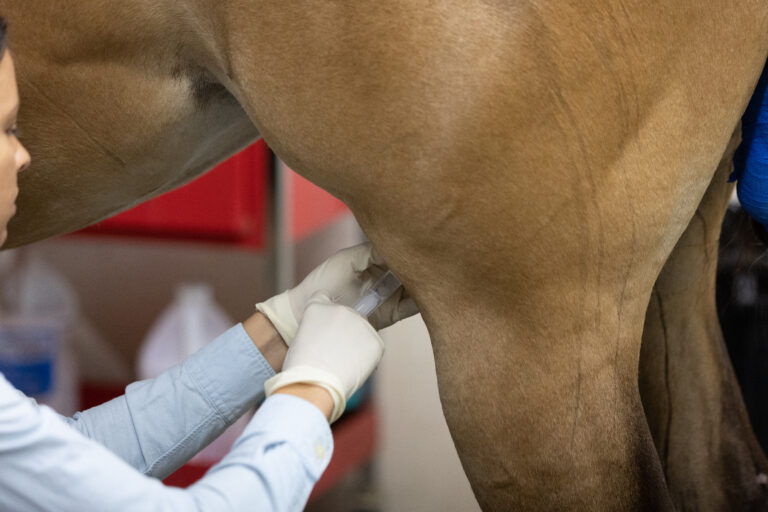
Colic with small intestinal involvement tends to be acutely painful. Acquisition of peritoneal fluid is helpful for diagnosis and prognostication purposes.
At the 12th International Equine Colic Symposium (2017), a paper was presented from work done at Michigan State University’s College of Veterinary Medicine that identified parameters of peritoneal fluid that could aid clinicians in next steps for care [Shearer, T.R.; Norby, B.; and Carr, E.A. The Diagnostic Utility Of Peritoneal Fluid Lactate And Color In Diagnosing Horses With Small Intestinal Disease. Equine Vet Educ, 29: 21].
The results of the study suggested that there is value in measuring the ratio of peritoneal fluid lactate to systemic lactate in order to differentiate between strangulating (SSI) and non-strangulating (NSSI) small intestinal lesions.
“A ratio of >2.0 and a ratio ≤2.0 combined with serosanguinous peritoneal fluid color accurately predicted 96.7% of small intestinal lesions that need surgical intervention.”




